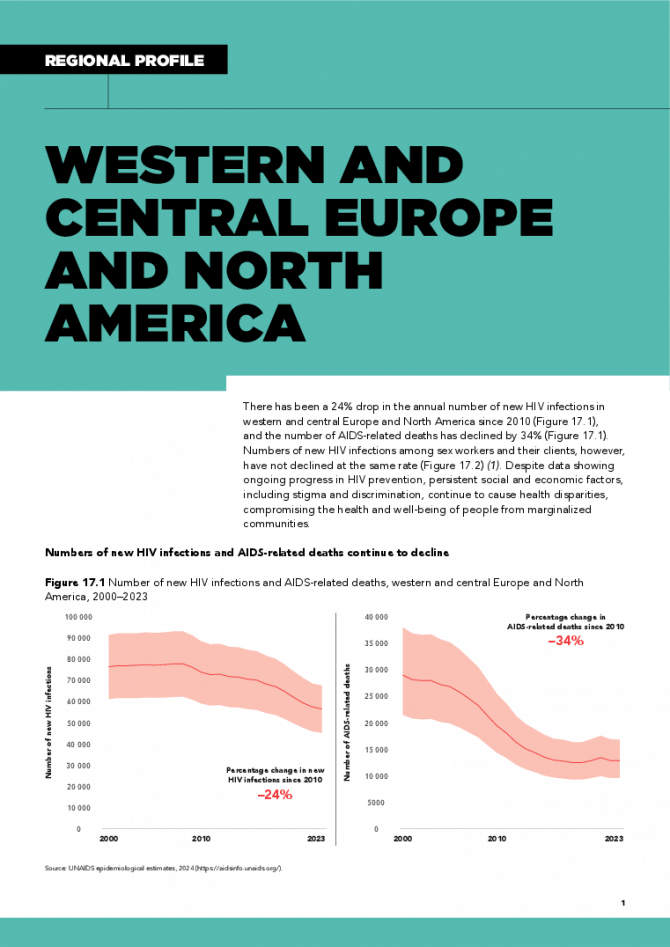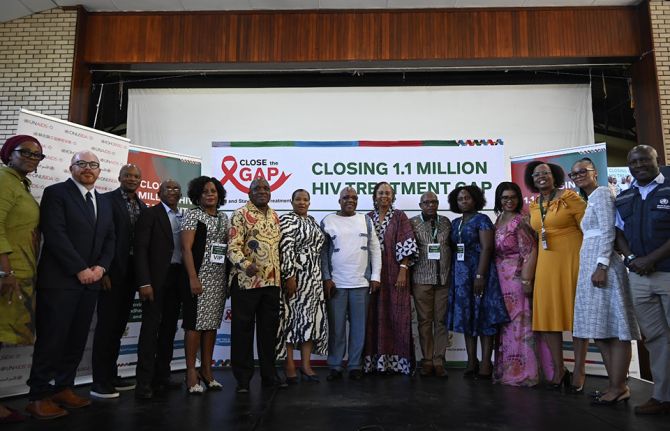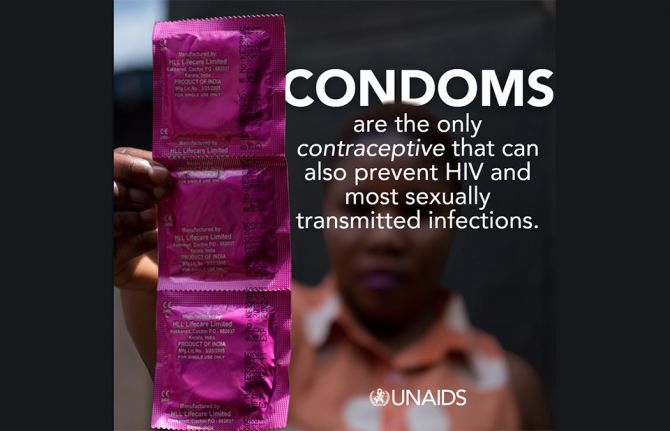North America


Press Release
UNAIDS urges that all essential HIV services must continue while U.S. pauses its funding for foreign aid
01 February 2025 01 February 2025GENEVA, 1 February 2025— The Joint United Nations Programme on HIV/AIDS (UNAIDS) is urging for a continuation of all essential HIV services while the United States pauses its funding for foreign aid.
On 29 January, UNAIDS welcomed the news that United States Secretary of State, Marco Rubio, had approved an “Emergency Humanitarian Waiver,” allowing people to continue accessing lifesaving HIV treatment funded by the U.S. in 55 countries worldwide. More than 20 million people - two-thirds of all people living with HIV accessing HIV treatment globally - are directly supported by the United States President’s Emergency Plan for AIDS Relief (PEPFAR).
While continuity of HIV treatment is essential, services must continue to be monitored, and oversight provided for quality. Other critical HIV services for people, especially marginalized people including children, women, and key populations, must continue. Last year, PEPFAR provided over 83.8 million people with critical HIV testing services; reached 2.3 million adolescent girls and young women with HIV prevention services; 6.6 million orphans, vulnerable children, and their caregivers received HIV care and support; and 2.5 million people were newly enrolled on pre-exposure prophylaxis to prevent HIV infection.
Since PEPFAR was created, the United States has been steadfast in its leadership in the fight against HIV. The U.S. has saved millions of lives through its programmes, particularly in the countries most affected by HIV. PEPFAR has had remarkable results in stopping new infections and expanding access to HIV treatment – and this must continue.
Globally, there are 1.3 million people that are newly infected with HIV every year, 3,500 every day. Young women and girls in Africa are at alarming high risk of HIV, where 3,100 young women and girls aged 15 to 24 years become infected with HIV every week and at least half of all people from key populations are not being reached with prevention services.
Pregnant women in high HIV prevalent areas must be tested for HIV to determine whether they are living with HIV so they can protect their baby by taking antiretroviral therapy prior to birth. As a result, babies will be born HIV-free.
Many organizations providing services for people living with HIV that are funded, or partly funded, by PEPFAR have reported they will shut their doors due to the funding pause with lack of clarity and great uncertainty about the future. UNAIDS is evaluating the impact and will provide routine and real-time updates to share the latest global and country information, data, guidance, and references.
“PEPFAR gave us hope and now the executive order is shattering the very hope it offered for all people living with HIV and our families. As communities we are in shock with the continued closure of clinics. We resolutely demand that all our governments come in haste to fill the gap in human resources needed at the moment to ensure sustainability of HIV service delivery,” said Flavia Kyomukama, Executive Director at National Forum of People Living with HIV Network Uganda (NAFOPHANU).
Zimbabwe`s umbrella network of people living with HIV (ZNNP+) stated that the implementation of stop work orders has led to significant fears, including reduced access to essential services, loss of community trust and long-term health outcomes.
As the waiver is effective for a review period of all U.S. foreign development assistance, future coverage of HIV services - including for treatment - remains unclear and the lives of the millions of people supported by PEPFAR are in jeopardy and could be at stake.
Anele Yawa, General Secretary for the Treatment Action Campaign is worried. "The PEPFAR-fund freeze will take South Africa and the world back in terms of the gains we have made in our response to HIV,” he said. "We are asking ourselves how are we going to cope in the next three months as people are going to be left behind in terms of prevention, treatment and care."
At a moment when the world can finally get the upper hand on one of the world’s deadliest pandemics, aided by new long-acting HIV prevention and treatment medicines coming to market this year, UNAIDS urges the U.S. to continue its unparalleled leadership and accelerate, not diminish, efforts to end AIDS.
UNAIDS looks forward to partnering with the United States, other donors and countries most affected by HIV to ensure a robust and sustainable response to HIV and to achieve our collective goal of ending AIDS as a public health threat by 2030.
UNAIDS
The Joint United Nations Programme on HIV/AIDS (UNAIDS) leads and inspires the world to achieve its shared vision of zero new HIV infections, zero discrimination and zero AIDS-related deaths. UNAIDS unites the efforts of 11 UN organizations—UNHCR, UNICEF, WFP, UNDP, UNFPA, UNODC, UN Women, ILO, UNESCO, WHO and the World Bank—and works closely with global and national partners towards ending the AIDS epidemic by 2030 as part of the Sustainable Development Goals. Learn more at unaids.org and connect with us on Facebook, Twitter, Instagram and YouTube.
Region/country


Press Statement
UNAIDS welcomes the decision by the US Secretary of State to continue life-saving HIV treatment and convenes partners to assess and mitigate impacts on HIV services
29 January 2025 29 January 2025GENEVA, 29 January 2025— The United States Secretary of State, Marco Rubio, has approved an “Emergency Humanitarian Waiver”, which will allow people to continue accessing HIV treatment funded by the US across 55 countries worldwide. More than 20 million people living with HIV, representing two-thirds of all people living with HIV receiving treatment globally, are directly supported by the United States President's Emergency Plan for AIDS Relief (PEPFAR) - the world’s leading HIV initiative.
“UNAIDS welcomes this waiver from the US government which ensures that millions of people living with HIV can continue to receive life-saving HIV medication during the assessment of US foreign development assistance,” said UNAIDS Executive Director, Winnie Byanyima. “This urgent decision recognizes PEPFAR’s critical role in the AIDS response and restores hope to people living with HIV.”
In recent days, the US Department of State announced an immediate 90-day funding pause for all foreign assistance, including for funding and services supported by PEPFAR. The executive order announcing a “90-day pause in United States foreign development assistance for assessment of programmatic efficiencies and consistency with United States foreign policy” was one of the first major foreign policy decisions of the new administration. This waiver approves the continuation or resumption of “life-saving humanitarian assistance” which applies to core life-saving medicine and medical services, including HIV treatment, as well as to supplies necessary to deliver such assistance.
UNAIDS will continue efforts to ensure that all people living with or affected by HIV are served and that other key components of PEPFAR’s life-saving efforts, including service delivery and services for HIV prevention, care, and support for orphans and vulnerable children are continued.
UNAIDS is serving in its essential role to mobilize and convene partners, governments, and communities across the globe at the country level to assess and mitigate the impact of the pause on the continuity of essential HIV services.
UNAIDS has encouraged President Donald J. Trump to prioritize the U.S. Government’s leadership in the global HIV response to achieve the shared goal of ending AIDS.
UNAIDS
The Joint United Nations Programme on HIV/AIDS (UNAIDS) leads and inspires the world to achieve its shared vision of zero new HIV infections, zero discrimination and zero AIDS-related deaths. UNAIDS unites the efforts of 11 UN organizations—UNHCR, UNICEF, WFP, UNDP, UNFPA, UNODC, UN Women, ILO, UNESCO, WHO and the World Bank—and works closely with global and national partners towards ending the AIDS epidemic by 2030 as part of the Sustainable Development Goals. Learn more at unaids.org and connect with us on Facebook, Twitter, Instagram and YouTube.
Region/country


Press Statement
UNAIDS encourages President Donald J. Trump to continue the strong leadership of the United States of America in the global AIDS response
22 January 2025 22 January 2025GENEVA, 22 January 2025—UNAIDS congratulates President Donald J. Trump as the 47th President of the United States of America.
“Under President Trump’s leadership, the United States of America has the opportunity to accelerate the global HIV response and end AIDS by 2030,” said Winnie Byanyima, Executive Director of UNAIDS.
During President Trump’s first administration, he demonstrated strong leadership in the fight against AIDS by launching the groundbreaking initiative Ending the HIV Epidemic in the US and reaffirming the United States of America's steadfast commitment to the United States President’s Emergency Plan for AIDS Relief (PEPFAR), the Global Fund to Fight AIDS, Tuberculosis, and Malaria (Global Fund), and the Joint United Nations Programme on HIV/AIDS (UNAIDS).
For more than two decades, the United States Government has led in the global HIV response, saving more than 26 million lives. The country's unwavering commitment to addressing HIV stands as a global gold standard of leadership.
Since the start of the AIDS pandemic, innovations led by the United States in HIV prevention and treatment technologies have saved millions of lives around the world.
Today, we are on the brink of ending AIDS thanks to advances in developing long-acting medicines which both prevent and treat HIV. These new medicines give us a real shot at ending AIDS with the United States of America at the forefront. UNAIDS is poised and ready to work side by side with the new Administration to save millions of lives by bringing these new medicines swiftly to scale.
The United States Government’s partnership with UNAIDS remains an indispensable force for progress and accountability in the global HIV response. UNAIDS looks forward to further strengthening its collaboration with the United States to achieve our shared goal of ending AIDS.
UNAIDS
The Joint United Nations Programme on HIV/AIDS (UNAIDS) leads and inspires the world to achieve its shared vision of zero new HIV infections, zero discrimination and zero AIDS-related deaths. UNAIDS unites the efforts of 11 UN organizations—UNHCR, UNICEF, WFP, UNDP, UNFPA, UNODC, UN Women, ILO, UNESCO, WHO and the World Bank—and works closely with global and national partners towards ending the AIDS epidemic by 2030 as part of the Sustainable Development Goals. Learn more at unaids.org and connect with us on Facebook, Twitter, Instagram and YouTube.
Region/country
Documents
Western and Central Europe and North America regional profile — 2024 global AIDS update The Urgency of Now: AIDS at a Crossroads
22 July 2024
There has been a 24% drop in the annual number of new HIV infections in western and central Europe and North America since 2010, and the number of AIDS-related deaths has declined by 34%. Numbers of new HIV infections among sex workers and their clients, however, have not declined at the same rate. Despite data showing ongoing progress in HIV prevention, persistent social and economic factors, including stigma and discrimination, continue to cause health disparities, compromising the health and well-being of people from marginalized communities. Related links: New UNAIDS report shows AIDS pandemic can be ended by 2030, but only if leaders boost resources and protect human rights now | Full report
Related
 U=U can help end HIV stigma and discrimination. Here’s how
U=U can help end HIV stigma and discrimination. Here’s how

27 February 2025
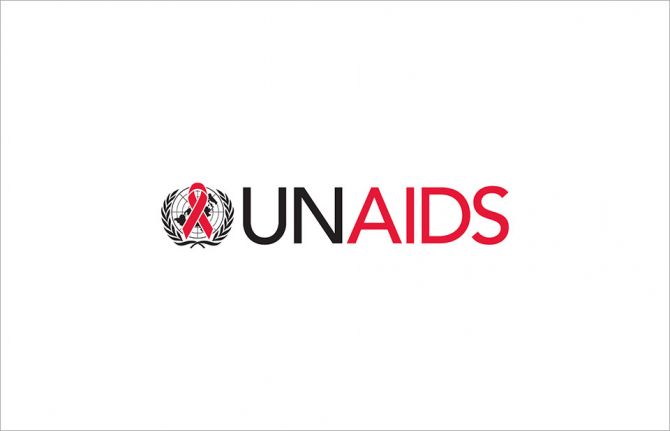 UNAIDS urges that all essential HIV services must continue while U.S. pauses its funding for foreign aid
UNAIDS urges that all essential HIV services must continue while U.S. pauses its funding for foreign aid

01 February 2025

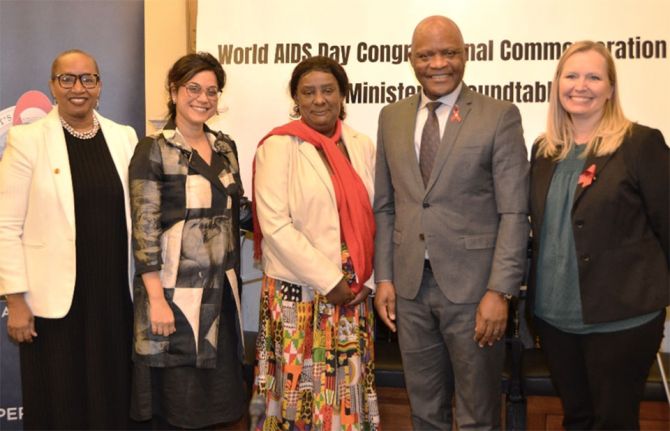
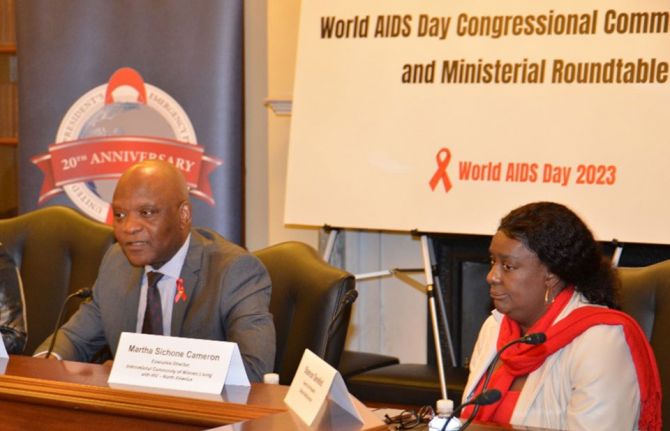
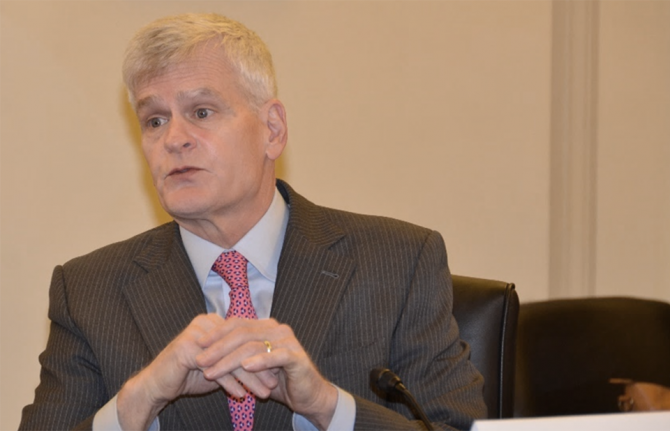
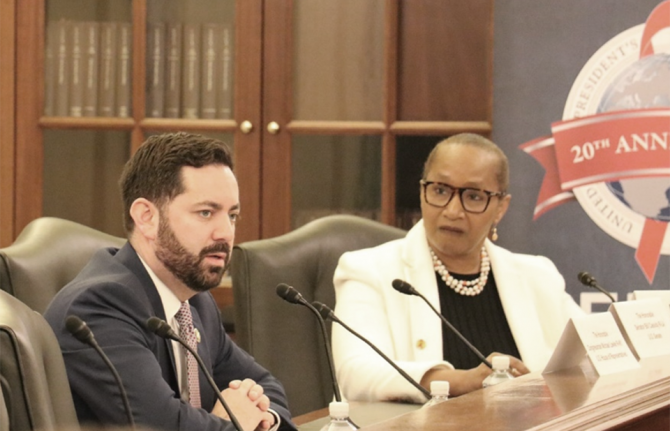

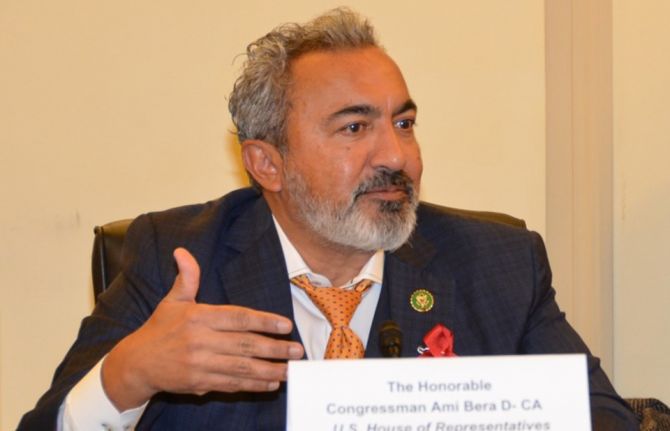
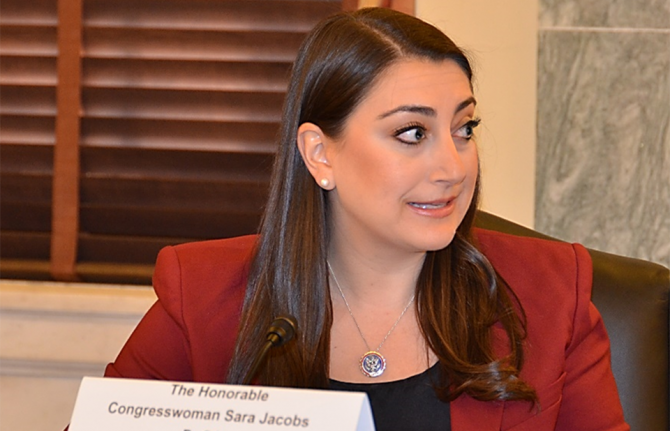
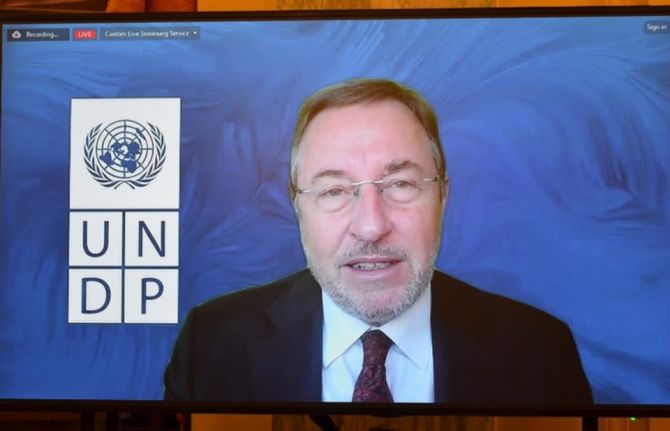
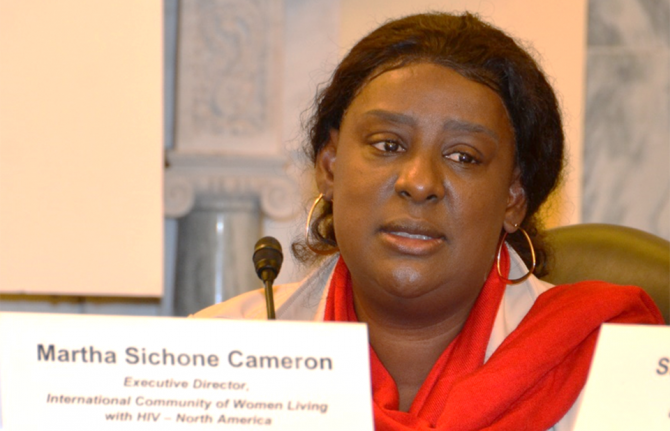
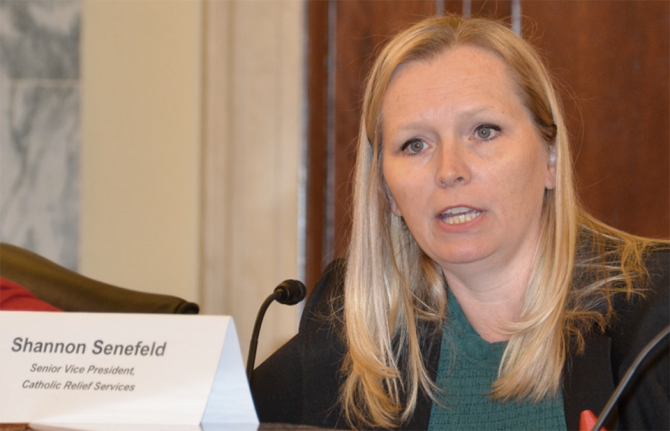
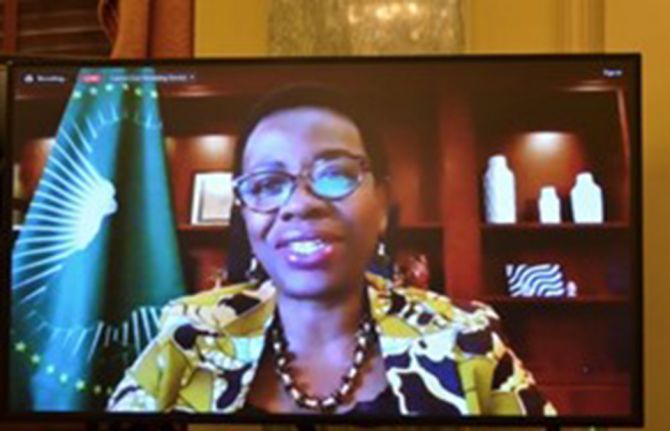
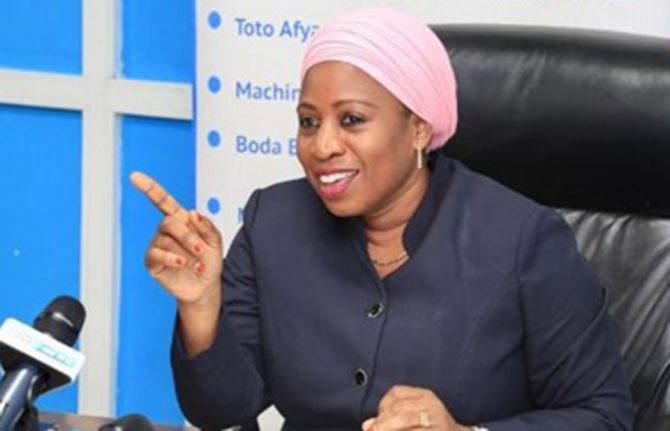
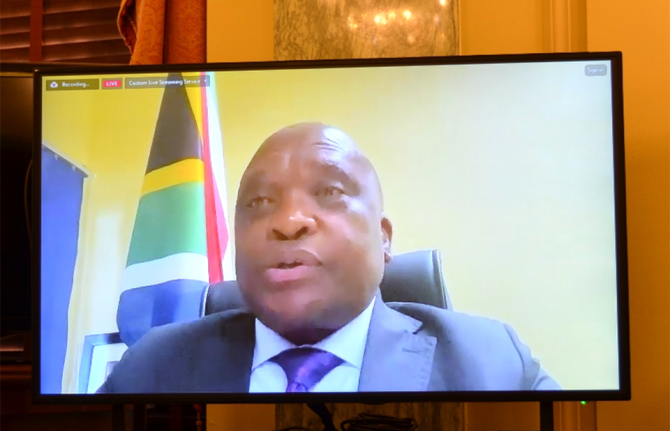
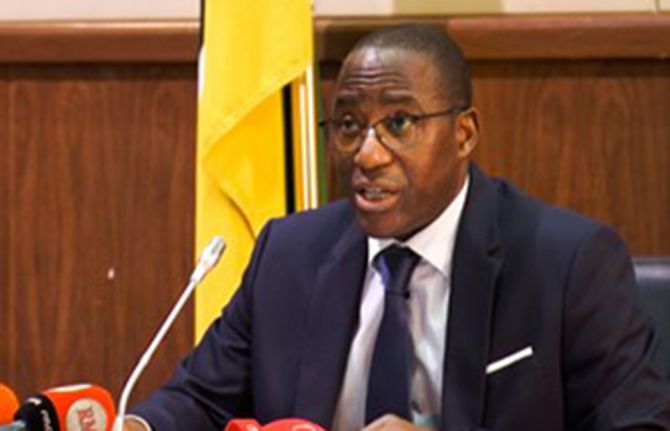
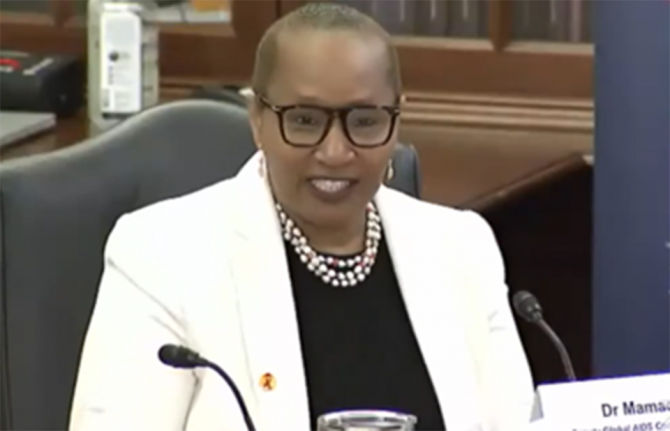
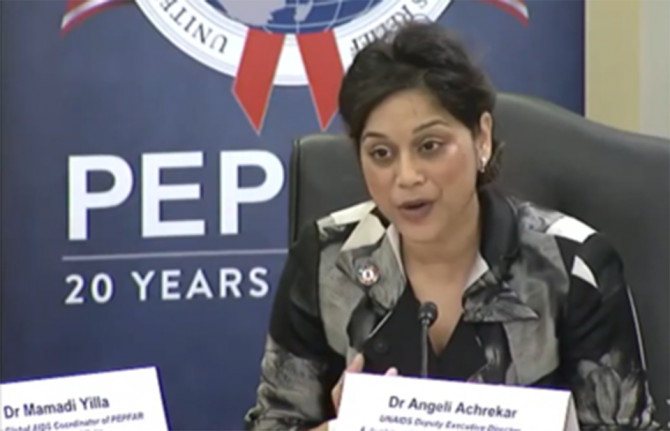
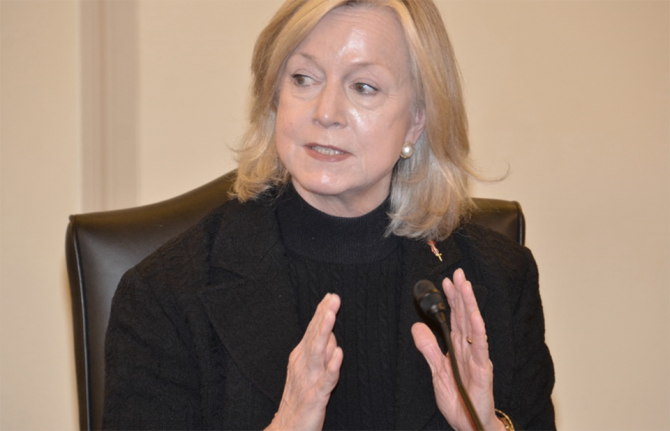
Press Statement
Members of United States Congress and global leaders commemorate World AIDS Day in Washington D.C.
01 December 2023 01 December 2023WASHINGTON D.C./GENEVA, 1 December 2023—UNAIDS, in partnership with the Bureau of Global Health Security and Diplomacy at the US Department of State and Members of US Congress, co-hosted a Congressional Commemoration and Ministerial Roundtable for the 35th World AIDS Day. The event featured bipartisan Members of US Congress who pledged continued support for the reauthorization of PEPFAR, and HIV, health and development leaders, including African Ministers of Health, who recommitted to sustain progress to end AIDS.
“We have to reauthorize PEPFAR. Success must continue,” said Senator Bill Cassidy. “The challenge before us is to continue to use the science and programmatic change to reach new at-risk populations, like mothers and babies. Our goal is to end AIDS, but it is going to be one population at a time.”
Congresswoman Barbara Lee called for a renewed bipartisan effort to reauthorize PEPFAR. “We have the opportunity to see an AIDS-free generation by 2030 and we have to do everything we can do to get there. I continue to work with my Republican colleagues every day to extend PEPFAR on a bipartisan basis. The well-being of millions of people in Africa are on the line.”
Congressman Hakeem Jeffries, Minority Leader of the US House of Representatives, said, “PEPFAR is the perfect example of a life-saving, life-preserving, life-changing program. You have our commitment as the House Democrats that we will continue to work with President Biden and our colleagues on the other side of the aisle to make sure that we secure a robust, strong, lengthy reauthorization of PEPFAR.”
Other esteemed Members of Congress who addressed the event included Representative Michael Lawler, Representative Sara Jacobs, and Representative Ami Bera. They cited powerful country examples of PEPFAR’s success and committed continued bipartisan support for the reauthorization of PEPFAR, demonstrating the importance of US Congressional leadership in the global HIV response.
“PEPFAR has become the gold standard for humanity,” said John Nkengasong, Ambassador-at-Large, US Global AIDS Coordinator and Senior Bureau Official for Global Health Security and Diplomacy at the US Department of State. “We need joint responsibility and joint accountability to end AIDS by 2030. I am hopeful the US Congress will secure a clean, five-year reauthorization of PEPFAR, which will enable us end AIDS.”
“PEPFAR is an illustration of the compassion and leadership of the American people - comparable to the Marshall Plan,” said Achim Steiner, Administrator of UNDP, and UNAIDS Cosponsor. “The multisectoral approach of the global HIV response has been instrumental in helping communities lead and build resilience.”
Global leaders highlighted the life-saving impact of PEPFAR’s contributions. Martha Cameron, Executive Director of the International Community of Women Living with HIV, North America, shared her story. “Had it not been for PEPFAR, I would not be here today. I was on my death bed in Zambia and was told I had very little time to live. I was one of those first recipients. Representing my community of faith-based organizations, I hope that PEPFAR will be reauthorized.”
“Global progress on HIV has been breathtaking, but the job is not yet done,” said Angeli Achrekar, Deputy Executive Director, Programme, UNAIDS. “We must continue our efforts to end AIDS as a public health threat by 2030 and sustain these gains into the future.”
Faith-based organizations have been at the forefront of the HIV response. “Working in Zambia before PEPFAR started, I remember losing friends on a weekly basis,” said Shannon Senefeld, Senior Vice President of Catholic Relief Services. “The programming implemented under PEPFAR has been pro-life. I am hard pressed to think of another example of such a life-affirming program that has been implemented by the US Government.”
The event included a high-level roundtable of leaders from across Africa, highlighting the life-saving impact of PEPFAR on progress in national HIV responses and across the African continent. “We acknowledge the remarkable leadership and collaboration between the African Union Commission, the US Congress, UNAIDS, the Global Fund and others working together to combat HIV/AIDS,” said Monique Nsanzabaganwa, Deputy Chairperson of the African Union Commission. “The African Union welcomes 20 years of US leadership in the fight against AIDS. Let me request that we finish this fight together and we continue this partnership in the next years, leading to 2030 and beyond.”
“In 2003, before PEPFAR was operational, less than 1 000 people in Tanzania were on antiretroviral therapy. Today more than 1.5 million Tanzanians are receiving this life-saving treatment for HIV, mainly because of the support we are getting from PEFPAR,” said Ummy Ally Mwalimu, Minister of Health of Tanzania. “Our appeal to the US Congress is to reauthorize PEPFAR in order to sustain the gains we have achieved.”
“We have the biggest burden of HIV and tuberculosis in the Continent and also in the world,” said Joseph Phaahla, Minister of Health of South Africa. “The partnership and support provided made it possible to roll out 5.8 million people on HIV treatment. We could not achieve this progress without the support of US Congress and ordinary American people. But the coverage of children remains a challenge which we need to close.”
“We acknowledge the support and partnership with PEPFAR, UNAIDS and the Global Fund,” said Armindo Daniel Tiago, Minister of Health of Mozambique. “We have reached the milestone of 2 million people receiving HIV treatment. We rely on the ongoing support of the US Congress, through PEPFAR, to achieve our targets and secure sustainability of the HIV response.”
The full event can be viewed online at: World AIDS Day Congressional Commemoration and Ministerial Roundtable - YouTube
PEPFAR’s latest program results (December 2023) demonstrate the life-saving impact of the program, including:
- Life-saving antiretroviral treatment for 20.47 million men, women, and children
- 1.95 million people to newly enrolled in PrEP to prevent HIV infection
- 327,000 health workers supported to deliver quality HIV-related prevention, treatment and supportive services, and
- 32.5 million men who received voluntary medical male circumcisions to help prevent new HIV infections since 2007.
UNAIDS latest global HIV data indicates that at the end of 2022 an estimated:
- 39.0 million people globally were living with HIV
- 29.8 million people were accessing antiretroviral therapy
- 1.3 million people became newly infected with HIV
- 630 000 people died from AIDS-related illnesses
UNAIDS
The Joint United Nations Programme on HIV/AIDS (UNAIDS) leads and inspires the world to achieve its shared vision of zero new HIV infections, zero discrimination and zero AIDS-related deaths. UNAIDS unites the efforts of 11 UN organizations—UNHCR, UNICEF, WFP, UNDP, UNFPA, UNODC, UN Women, ILO, UNESCO, WHO and the World Bank—and works closely with global and national partners towards ending the AIDS epidemic by 2030 as part of the Sustainable Development Goals. Learn more at unaids.org and connect with us on Facebook, Twitter, Instagram and YouTube.
PEPFAR
The Bureau of Global Health Security and Diplomacy at the U.S. Department of State leads, manages, and oversees the U.S. President’s Emergency Plan for AIDS Relief (PEPFAR). Through PEPFAR, the U.S. government has invested over $110 billion in the global HIV/AIDS response, the largest commitment by any nation to address a single disease in history, saving over 25 million lives, preventing millions of HIV infections, and accelerating progress toward controlling the global HIV/AIDS pandemic in more than 50 countries.
Watch the event
Region/country

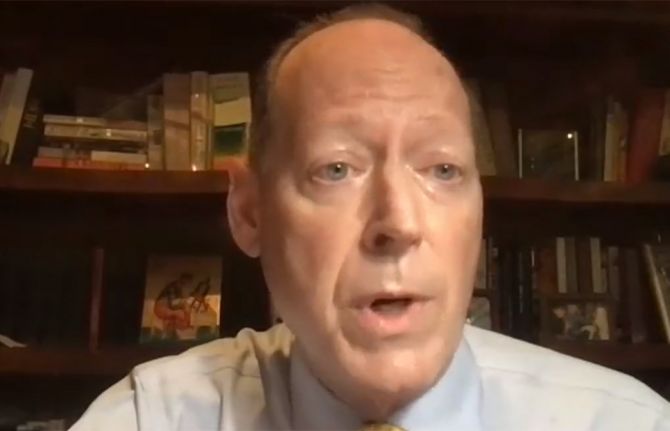
Press Statement
Remembering a global health advocate and renowned doctor
07 March 2022 07 March 2022UNAIDS is deeply saddened at the death of Paul Farmer
GENEVA, 11 March 2022—UNAIDS is deeply saddened at the death of Paul Farmer, anthropologist, doctor and global health champion. He was Kolokotrones University Professor and Chair of the Department of Global Health and Social Medicine at Harvard Medical School, Chief of the Division of Global Health Equity at Brigham and Women’s Hospital in Boston and co-founder of Partners in Health.
“Paul Farmer fought for social justice and human rights and passionately believed in the right to health for all,” said Winnie Byanyima, the Executive Director of UNAIDS. “His work saved millions and showed us the way to reach health care with dignity.”
Partners in Health, a social justice organization founded more than three decades ago, establishes long-term relationships with sister organizations based in settings of poverty. Its main goal is to bring the benefits of modern medical science to those most in need.
In 2000, Mr Farmer and colleagues proved that community-based approaches to HIV treatment in poor settings worked. In 2000, an estimated 4.7 to 8.9 million African children aged 0–17 years had lost one or both parents due to AIDS and HIV had become the world’s leading infectious cause of death among adults with more than 90% of those deaths occurring in low- and middle-income countries. Many had argued that the high cost of antiretroviral medicines (more than US$ 10 000 annually) and the lack of health infrastructure would mean that progress against AIDS would be impossible, but Mr Farmer and his team proved them wrong. His pilot HIV treatment programme in a poor community in rural Haiti that relied on an existing tuberculosis-control infrastructure showed that positive results could be made among people with advanced HIV.
Mr Farmer also advocated that HIV treatment could reinvigorate HIV prevention programmes and argued that, from his experience in Haiti and Rwanda, the rollout of effective antiretroviral therapy lessened HIV-related stigma and discrimination.
In 2012, Mr Farmer and his team celebrated the fact that almost 10 million people living in low- and middle-income countries were on antiretroviral therapy. Later, he focused on people dying of hepatitis C, like HIV a treatable and preventable disease, and regretted that at the time of his death nearly 10 million people living with HIV still did not have access to treatment.
In late November 2021, Mr Farmer joined a virtual UNAIDS panel ahead of World AIDS Day. He stressed that all human lives have the same value and that everyone has the inalienable right to be healthy and to fulfil their potential. Drawing parallels between COVID-19 and HIV, he said, “Inequality is a major driver of pandemics in general. As with AIDS as with structural racism, gender inequality and various forms of social marginalization, active processes continue to structure risk for COVID-19 and also for the fruits of science that have been marshalled to fight it.”
UNAIDS is saddened by the death of Prof Paul Farmer, a passionate advocate for HIV treatment, who showed the world that AIDS-related deaths can be reversed with access, rights & compassion. The global health community has lost a pioneering leader, but his work will continue on. pic.twitter.com/UVS7JP8xuj
— UNAIDS (@UNAIDS) February 21, 2022
He added, “We are now living in a time of vaccine apartheid ... were we to have had a vaccine for HIV, it would be a similar challenge. So, it is, in fact, not two different pandemics posing two discreet sets of challenges but two colliding pandemics.”
As Mr Farmer repeated over and over again during his life, it is our collective duty to take the steps needed to tackle inequalities. UNAIDS, in its 2021 World AIDS Day report, Unequal, unprepared, under threat: why bold action against inequalities is needed to end AIDS, stop COVID-19 and prepare for future pandemics, warned that if the transformative measures needed to end AIDS are not taken, the world will also stay trapped in the COVID-19 crisis and remain dangerously unprepared for the pandemics to come.
Partners in Health has organized an online memorial service at 10:00–12:00 Eastern Time (16:00–18:00 Central European Time) on 12 March 2022 to honour his work.
Region/country

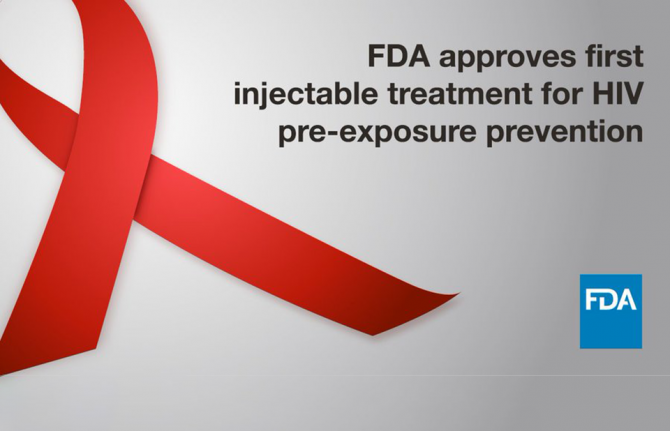
Press Statement
UNAIDS welcomes the approval of long-acting injectable cabotegravir as a pre-exposure prophylaxis for HIV prevention
22 December 2021 22 December 2021The United States Food and Drug Administration announced its first approval of a long-acting HIV prevention medication earlier this week. The long-acting injectable cabotegravir (CAB - LA) is approved as a pre-exposure prophylaxis (PrEP) for adults and adolescents who are at risk of acquiring HIV sexually in the United States of America.
This is the first time an injectable antiretroviral drug becomes available as a pre-exposure prophylaxis for prevention of HIV. The long-acting formula is a step forward and a valuable addition to the HIV prevention toolbox and will make acceptance and adherence easy.
A long-acting PrEP product such as CAB-LA, taken initially as two injections one month apart and then after every two months afterward, could offer a better choice for adults and adolescents at substantial HIV risk who either do not want to take or struggle with taking a daily tablet. Companies holding new technologies should share their knowledge and recipes with generic producers to ensure availability and affordability in low and middle-income countries.
UNAIDS is calling for this new drug to quickly be made available and affordable to people who need it most not just in the United States of America but everywhere in the world. The mistakes of three decades ago when lifesaving drugs were only available to those who could afford it must not be repeated. Market strategies such as generic competition and public health-oriented management of intellectual property rights, either through voluntary agreements or the use of TRIPS flexibilities must be used to make this new drug widely available.
To make this drug available equitably across the world, a series of actions are essential. Firstly, the drug has to be approved by regional and national regulatory authorities in a speedy manner. It is encouraging to see that the developer of CAB-LA, has already submitted to the South African Health Products Regulatory Authority (SAHPRA) for approval and an outcome is expected in early 2022. However access must go much further. Secondly the selling price must come down through a combination of measures such as licencing and involvement of generic producers. Thirdly, national HIV prevention programmes must prepare roll out plans and prepare their health systems and communitiues to deploy this new HIV prevention option as soon as they are available.
Current pre-exposure prohylaxis--Tenofovir plus Emtricitabine—tablets have to be taken daily as oral PrEP. They are highly effective in preventing HIV acquisition among persons at substantial risk when taken as prescribed. However many find it challenging to take a daily tablet. Another option—dapiviringe vaginal ring—is becoming available as additional prevention option for women at substantial risk of HIV infection.
The CAB-LA option could be a game-changer for the HIV response, making PrEP simpler or less burdensome for all genders. This may also circumvent the stigma associated with daily oral therapy and improve correct dosing and adherence which is critical for PrEP effectiveness.
This week’s United States Food and Drug Administration approval follows results from two trials. The first trial, HPTN 083, was conducted in 4 566 gay men and men who have sex with men and transgender women at research centers in Argentina, Brazil, Peru, the United States, South Africa, Thailand, and Vietnam. CAB – LA reduced the risk of sexually acquired HIV by 66% compared to daily oral. In the second trial HPTN 084, among 3,223 at-risk women aged 18-45 across 20 trial sites in seven countries in Sub Saharan Africa (Botswana, Eswatini, Kenya, Malawi, South Africa, Uganda, and Zimbabwe), CAB – LA reduced the risk of acquiring HIV by 89% compared to daily oral PrEP.
UNAIDS
The Joint United Nations Programme on HIV/AIDS (UNAIDS) leads and inspires the world to achieve its shared vision of zero new HIV infections, zero discrimination and zero AIDS-related deaths. UNAIDS unites the efforts of 11 UN organizations—UNHCR, UNICEF, WFP, UNDP, UNFPA, UNODC, UN Women, ILO, UNESCO, WHO and the World Bank—and works closely with global and national partners towards ending the AIDS epidemic by 2030 as part of the Sustainable Development Goals. Learn more at unaids.org and connect with us on Facebook, Twitter, Instagram and YouTube.
Our work
Region/country

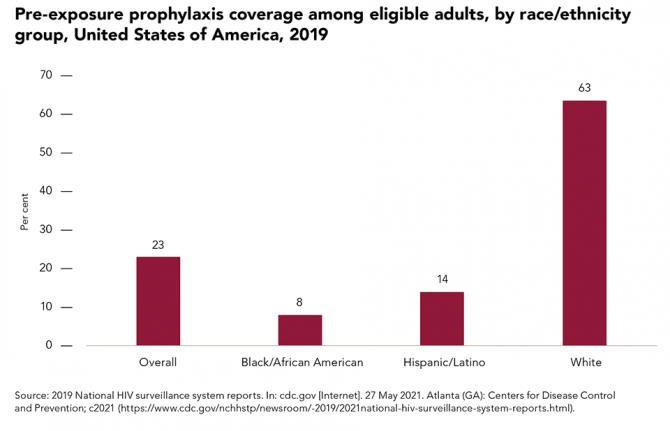
Update
Race affecting HIV service provision in the United States of America
15 November 2021
15 November 2021 15 November 2021HIV service disparities by race have been documented in several parts of the developed world.
In the United States of America, black people account for a disproportionately large percentage of new HIV infections in the country: 41% in 2019, although they represent only about 13% of the national population. This is in part due to lower coverage of HIV prevention services. Just 8% of black Americans and 14% of Hispanics/Latinos who were eligible for pre-exposure prophylaxis were prescribed it, compared to 63% of whites.
Studies also report significant racial disparities in HIV treatment outcomes, with delayed initiation of treatment and care, lower adherence to antiretroviral therapy, increased stigma and discrimination, mistrust of or lack of access to health-care providers and inadequate access to health insurance among the contributing factors. Many of these gaps are among black and Latino gay men and other men who have sex with men, who must contend with both racial inequalities and homophobia.
Related
 Government ensures continuity of treatment in Malawi
Government ensures continuity of treatment in Malawi

10 February 2025

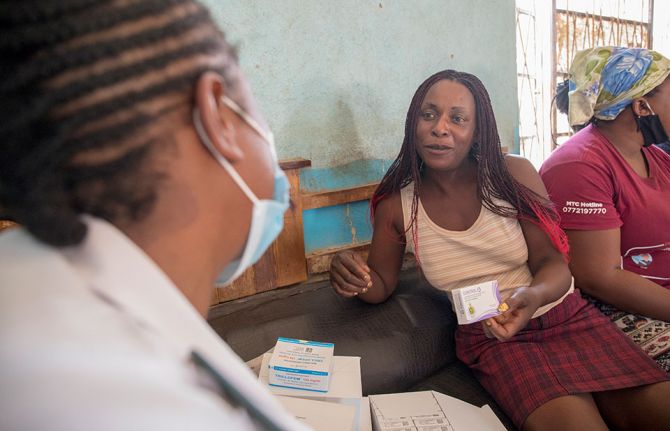
Press Statement
UNAIDS welcomes the United States of America’s decision to support women’s health, safety and rights
03 February 2021 03 February 2021GENEVA, 3 February 2021—UNAIDS warmly welcomes the announcement by the President of the United States of America, Joe Biden, that he has rescinded the Protecting Life in Global Health Assistance Policy (PLGHA, previously known as the Mexico City Policy). The policy required foreign nongovernmental organizations to certify that they would not perform or actively promote abortion using funds from any source (including non-United States funds) as a condition of receiving United States Government funding.
“Rescinding the PLGHA is a strong demonstration of the new United States Administration’s commitment to supporting women to claim their rights and to access sexual and reproductive health and rights information and services,” said Winnie Byanyima, UNAIDS Executive Director. “We look forward to working closely with the new United States Administration to ensure that all women and girls can exercise their human rights and get the sexual and reproductive health information and services they want and need.”
The former United States Administration took previous restrictions established by the Mexico City Policy to a new level by applying the policy to global health assistance provided by all executive departments and agencies. This severely limited access to critical sexual and reproductive health-care services and stifled local advocacy efforts, in turn undermining human rights in general and sexual and reproductive health and rights in particular worldwide.
UNAIDS welcomes the White House’s call to waive conditions related to the PLGHA in any current grants with immediate effect, to notify current grantees, as soon as possible, that these conditions have been waived and to cease imposing these conditions in any future assistance awards.
“Women and girls having full access to their sexual and reproductive health and rights is closely connected to their overall safety, health and well-being. We hope that this will inform the passage of the Global Health, Empowerment and Rights Act—legislation designed to permanently repeal the PLGHA,” added Ms Byanyima.
UNAIDS also warmly welcomes the announcement by the President that the United States will restore funding to the United Nations Population Fund (UNFPA), a key UNAIDS cosponsoring organization working around the world to provide reproductive health care for women and young people. UNAIDS appreciates the commitment by the United States Secretary of State, Anthony Blinken, to appropriate US$ 32.5 million in support for UNFPA this year.
UNAIDS
The Joint United Nations Programme on HIV/AIDS (UNAIDS) leads and inspires the world to achieve its shared vision of zero new HIV infections, zero discrimination and zero AIDS-related deaths. UNAIDS unites the efforts of 11 UN organizations—UNHCR, UNICEF, WFP, UNDP, UNFPA, UNODC, UN Women, ILO, UNESCO, WHO and the World Bank—and works closely with global and national partners towards ending the AIDS epidemic by 2030 as part of the Sustainable Development Goals. Learn more at unaids.org and connect with us on Facebook, Twitter, Instagram and YouTube.
Region/country

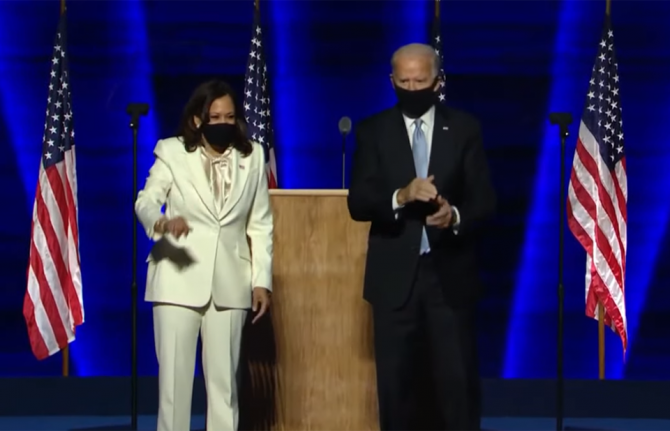
Press Statement
UNAIDS congratulates President-elect Joe Biden and Vice President-elect Kamala Harris on their election
10 November 2020 10 November 2020GENEVA, 10 November 2020—UNAIDS congratulates President-elect Joe Biden and Vice President-elect Kamala Harris on the recent election results in the United States of America.
“UNAIDS looks forward to working with the new United States administration on the challenge of ending AIDS, for which there is still no vaccine and no cure,” said Winnie Byanyima, Executive Director of UNAIDS. “The colliding pandemics of COVID-19 and HIV are evidence that global solidarity and shared responsibility is needed now more than ever before to ensure that no one is left behind and that medicines, services and solutions can be accessed equitably.”
In 2019, around 1.7 million people became infected with HIV and 690 000 people died of AIDS-related illnesses. UNAIDS and the United States Government have collaborated closely since the inception of UNAIDS in 1996, to accelerate progress towards global HIV prevention and treatment targets in the countries most affected by HIV.
Through the United States President’s Emergency Plan for AIDS Relief (PEPFAR), the United States Government has invested more than US$ 85 billion in the global response to HIV, the largest commitment by any nation to address a single disease. Strong bipartisan support for investments to end AIDS across successive administrations and effective, data-driven and evidence-informed HIV programming through PEPFAR and investments to the Global Fund to Fight AIDS, TB and Malaria, have enabled millions of men, women and children to live longer, healthier lives.
To ensure continued success towards ending AIDS, concerted, strategic efforts in the months and years ahead will be needed, especially at a moment when COVID-19 threatens the health of people all around the world. To end these dual pandemics UNAIDS looks forward to continuing to work closely with the United States for a safer, healthier world.
UNAIDS
The Joint United Nations Programme on HIV/AIDS (UNAIDS) leads and inspires the world to achieve its shared vision of zero new HIV infections, zero discrimination and zero AIDS-related deaths. UNAIDS unites the efforts of 11 UN organizations—UNHCR, UNICEF, WFP, UNDP, UNFPA, UNODC, UN Women, ILO, UNESCO, WHO and the World Bank—and works closely with global and national partners towards ending the AIDS epidemic by 2030 as part of the Sustainable Development Goals. Learn more at unaids.org and connect with us on Facebook, Twitter, Instagram and YouTube.
Contact
UNAIDS GenevaSophie Barton-Knott
tel. +41 79 514 6896
bartonknotts@unaids.org
UNAIDS Media
tel. +41 22 791 4237
communications@unaids.org
Press centre
Download the printable version (PDF)

